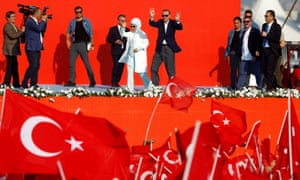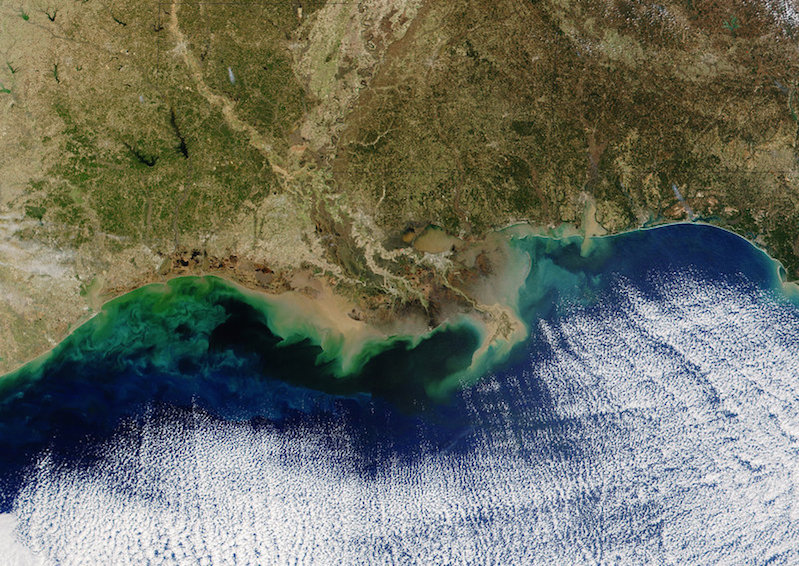via OUP Blog by Philip Sheldrake

Stained glass spiral circle by msandersmusic. Public domain via Pixabay
What does spirituality really mean? Is spirituality distinct from religion? Why is spirituality becoming increasingly popular and how has the term evolved and used today from its Christian roots? Philip Sheldrake, author of Spirituality: A Very Short Introduction, talks about what he thinks are the top 10 facts everyone should know about spirituality.
Continue reading [there is also a video]
How to build a bridge of stacked coins that extend over a table
via Boing Boing by Mark Frauenfelder
[via The Kid Should See This]
Is What’s Coming from Under the Ice Going to Kill Us – or Save Us?
via Big Think by Philip Perry
The permafrost in the arctic and Antarctic are warming at an unprecedented rate. Whether this will help cool the Earth or unleash even greater strife and turmoil, is a matter of debate. One thing we know for sure, the arctic is being affected by climate change at a much faster rate than predicted, and three times more quickly than the rest of the planet.
One of the fears is that this will release a significant amount of methane gas into the atmosphere. The bacteria in this permafrost can either release carbon dioxide or methane, depending if there’s enough oxygen around. This is the traditional concern. But now things are getting more complicated. Scientists need to find out exactly what kind of bacteria is trapped and what kind of reaction their reintroduction might make.
Continue reading
Fake news is bad. But fake history is even worse
via the Guardian by Natalie Nougayrède
From Turkey to China, strongmen rewrite the past to suit their ends. But democracies are not immune to this revisionism

Turkish president Recep Erdoğan and his wife, Emine, attend a rally in Istanbul. Photograph: Osman Orsal /Reuters
On 22 July, the Hungarian prime minister Viktor Orbán stood before university students and delivered a speech titled “Will Europe belong to Europeans?” It contained rambling passages about how a “Soros plan” was in place to bring in “hundreds of thousands of migrants every year – if possible, a million – to the territory of the European Union from the Muslim world”. The aim was to transform the continent into “a new, Islamised Europe”. This, Orbán argued, was what lay behind “Brussels’ continuous and stealthy withdrawal of powers from the nation states”. Orbán has form when it comes to this kind of paranoid vision. He’s an authoritarian populist who has made a habit of stoking xenophobia and anti-Muslim sentiment. He eagerly amplifies far-right conspiracy theories about the Christian majority being threatened by demographic “replacement”. His message isn’t just fake news about the present, however. It comes laced with historical distortion.
Continue reading
The problems with mustard gas
via The National Archives Blog by Louise Bell
With the arrival of mustard gas in July 1917, the medical services faced a new challenge. This was not the first time that poisonous gas had been used on the Western Front, but this one settled in the soil and could continue to contaminate for weeks. It also caused long-lasting effects for those who were unfortunate enough to encounter it.
Continue reading but be aware that images of someone suffering from gas are not pretty.
Do brain interventions to treat disease change the essence of who we are
via 3 Quarks Daily: Adina Roskies in Salon
These days, most of us accept that minds are dependent on brain function and wouldn’t object to the claim that “You are your brain.” After all, we’ve known for a long time that brains control how we behave, what we remember, even what we desire. But what does that mean? And is it really true? Despite giving lip service to the importance of brains, in our practical life this knowledge has done little to affect how we view our world. In part, that’s probably because we’ve been largely powerless to affect the way that brains work, at least in a systematic way. That’s all changing. Neuroscience has been advancing rapidly, and has begun to elucidate the circuits for control of behavior, representation of mental content and so on. More dramatically, neuroscientists have now started to develop novel methods of intervening in brain function. As treatments advance, interventions into brain function will dramatically illustrate the dependence of who we are on our brains — and they may put pressure on some basic beliefs and concepts that have been fundamental to how we view the world.
Continue reading
How two sisters uncovered heartbreak in their grandfather's envelope designs
via the Guardian by Joanna Moorhead
When two sisters started researching their grandfather’s hobby, they uncovered a love affair that tore their family apart 100 years ago

A selection of envelopes painted by Frederick Tolhurst and sent to his children Vera and Reginald. Photograph: Sam Frost for the Guardian
When Brenda Fitch was two, her paternal grandfather sent her a letter with a prediction. “I know,” he wrote, “that your dear Dada and Mamma are keeping a book of envelopes for you, and I have no doubt when you reach the age of 21 you will consider them interesting.”
Frederick Tolhurst, Brenda’s grandfather, was an amateur artist and the envelopes that he was referring to were illustrated by him with colourful, child-friendly designs. And he was correct: later in her life, Brenda would indeed find them fascinating. But it wasn’t until she was 74 that she discovered the heartbreaking truth behind her grandfather’s hobby.
Continue reading
via Boing Boing by Andrea James

The good folks at YouCar took a tour of a wood shop that makes dashboard panels for Bentleys, and it’s a real pleasure to watch such fine work being produced.
Continue reading
Krannert Art Museum Launches New Web Site
via ResearchBuzz Firehose: Julia Nucci Kelly for the Krannert Art Museum
Krannert Art Museum at the University of Illinois (KAM) has recently launched an expanded, redesigned website, kam.illinois.edu, that opens online access to the museum’s panoramic collection of art to students, researchers, and online visitors.
The redesigned website will enable visitors to learn more about the museum’s collection galleries and institutional history, give teachers resources to bring art into their classrooms and learn more about the public engagement program Krannert Art Museum – Week at the Museum, and give students and art researchers access to original curatorial research related to exhibitions at KAM.
Online visitors will also be able to do something new: search the art collection through the museum website.
Continue reading
Meat industry runoff has created a massive dead zone in the Gulf of Mexico
via Boing Boing by Andrea James

More than 8,000 square miles of the Gulf of Mexico were turned into a dead zone thanks to manure and chemical runoff from massive meat industry suppliers spilling into the Mississippi River delta.
Continue reading
No comments:
Post a Comment